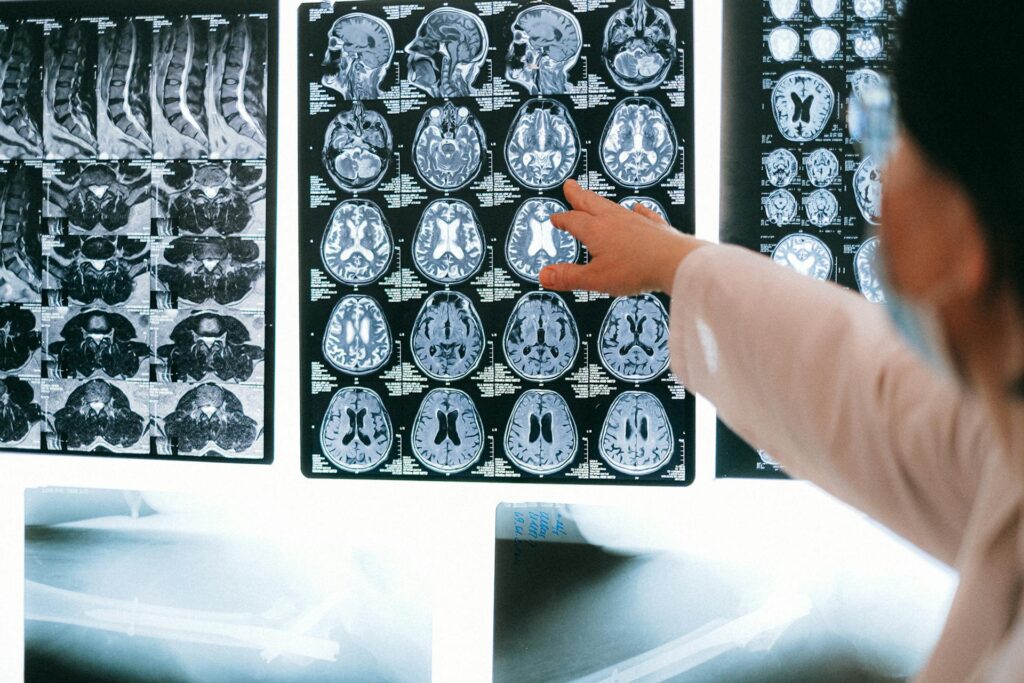By Bill Thomas | October 8
“I think therefore I am.”
That famous quote, by 17th century philosopher René Descartes, underscores just how central a person’s brain is to defining who they are. Our brains are where our memories are formed and retained. They’re where external stimuli are processed, dictating how we experience and understand the world. They’re at the very root of our moods and emotions, the core of our identities and self-perceptions.
Consequently, brain health is directly tied to mental health. Injuries and diseases that affect the structure and function of the brain can have a serious impact on how we feel, not just physically but also emotionally. This is especially true for children, whose brains are still developing; disruptions in childhood brain development can have far-reaching side effects that last well into adulthood.
Here at Pediatric Cancer Research Foundation, we believe that mental health support is a key component of caring for children and young adults affected by cancers. Last year, for World Mental Health Day, we explored how the stress and anxiety of living with pediatric cancer can negatively influence a patient’s mental health. This year, we thought it would be helpful to examine a different way that pediatric cancers directly affect mental health by shining a light on the connection between pediatric brain tumors and neurological development.

The Neurological Effects of Pediatric Brain Tumors
Different parts of the brain are responsible for different functions. These functions range from the purely physical–the medulla oblongata helps us regulate blood circulation–to the emotional–the amygdala helps us process feelings of fear, anger, and pleasure.
Consequently, there are many, many ways the various types of pediatric brain tumors can impact neurological development. The part of the brain where a tumor develops has a direct effect on what kind of symptoms the patient experiences; a tumor in or around the cerebellum can impair balance and coordination, for example. Additionally, pediatric brain tumors can put pressure on the nerves, causing patients to experience a persistent tingling sensation, chronic weakness, or even paralysis.
Common neurological symptoms of pediatric brain cancers include impaired motor skills, sensory complications, short term memory loss, slurred speech, delayed information processing, and seizures. For some childhood cancer survivors, these symptoms can persist even after their disease has gone into remission, potentially lasting their entire lives.
How Neurological Health Impacts Mental Health
About 90% of brain development occurs before the age of 5. However, the prefrontal cortex–an area of the brain that plays a key role in high-level cognitive function including emotional control –continues developing well into adolescence. The limbic system, which is the primary part of the brain that regulates mood, likewise undergoes significant development during adolescence, only reaching full maturation between the ages of 18-21.
Just as a tumor growing near the medulla oblongata can cause high blood pressure or a rapid heartbeat, tumors growing in or around these areas can have profound effects on emotional and behavioral health. Pediatric cancer patients may struggle with impulse control, mood swings, and memory loss. They may experience moments of confusion or have difficulty paying attention.
This, in turn, can cause or exacerbate feelings of depression or anxiety. Being diagnosed with any form of pediatric cancer is stressful for a child. Tumors that negatively impact the parts of the brain that are supposed to help children cope with stress make the experience of living with pediatric cancer all the more challenging, increasing patients’ risk of developing ongoing mental health conditions.

Improving Treatments for Pediatric Brain Tumors
One of the biggest hurdles facing patients with pediatric brain cancers is the fact that treatment options like radiation therapy, chemotherapy, and surgery pose almost as much risk of causing permanent damage to the structure and functionality of the brain as the disease itself. With pediatric brain tumors being the most commonly diagnosed cancers in patients under the age of 14 and the leading cause of pediatric cancer-related death, the need to develop less toxic treatment options is as pressing now as it’s ever been.
One of the most promising advancements in modern pediatric cancer care has been the rise of targeted immunotherapy, which harnesses the power of the patient’s own immune system to eliminate cancer cells with a much lower risk of long-term negative side effects. Among the PCRF-funded researchers working to make targeted immunotherapy a viable treatment option for pediatric cancer patients is Dr. Ashley Plant-Fox at Ann & Robert H. Lurie Children’s Hospital of Chicago, who is currently leading a phase I/II clinical trial focused on immunotherapies that activate T cells to target diffuse intrinsic pontine glioma (DIPG), an aggressive form of pediatric brain cancer notable for its high level of lethality.
Recent breakthroughs by Dr. Cody Nesvick at the University of Pittsburgh, are likewise revolutionizing the way doctors treat atypical teratoid rhabdoid tumor (ATRT), a similarly aggressive form of pediatric brain cancer. Meanwhile, at the University of Alabama at Birmingham, Dr. Rintaro Hashizume’s research into intranasal drug delivery systems heralds a new, innovative, and non-invasive method of treating high-grade gliomas that bypasses the blood-brain barrier, which has long acted as an obstacle for oncologists caring for pediatric brain tumor patients.
Dr. Plant-Fox, Dr. Nesvick, and Dr. Hashizume are just a few of the PCRF-funded researchers actively working to improve treatment options for children and young adults with pediatric brain cancers. Alongside mental health support, powering research that reduces treatment toxicity and enhances quality of life for both patients and survivors is a core tenet of the Biomedical Lifecycle Model that guides and motivates Pediatric Cancer Research Foundation’s comprehensive approach to pediatric cancer care.
If you would like to help us in our efforts to support mental health and survivorship and power innovative pediatric cancer research, please consider becoming a donor. To stay up-to-date with all the latest news shaping the future of pediatric cancer treatment, don’t forget to follow Pediatric Cancer Research Foundation’s Profectus Blog!

